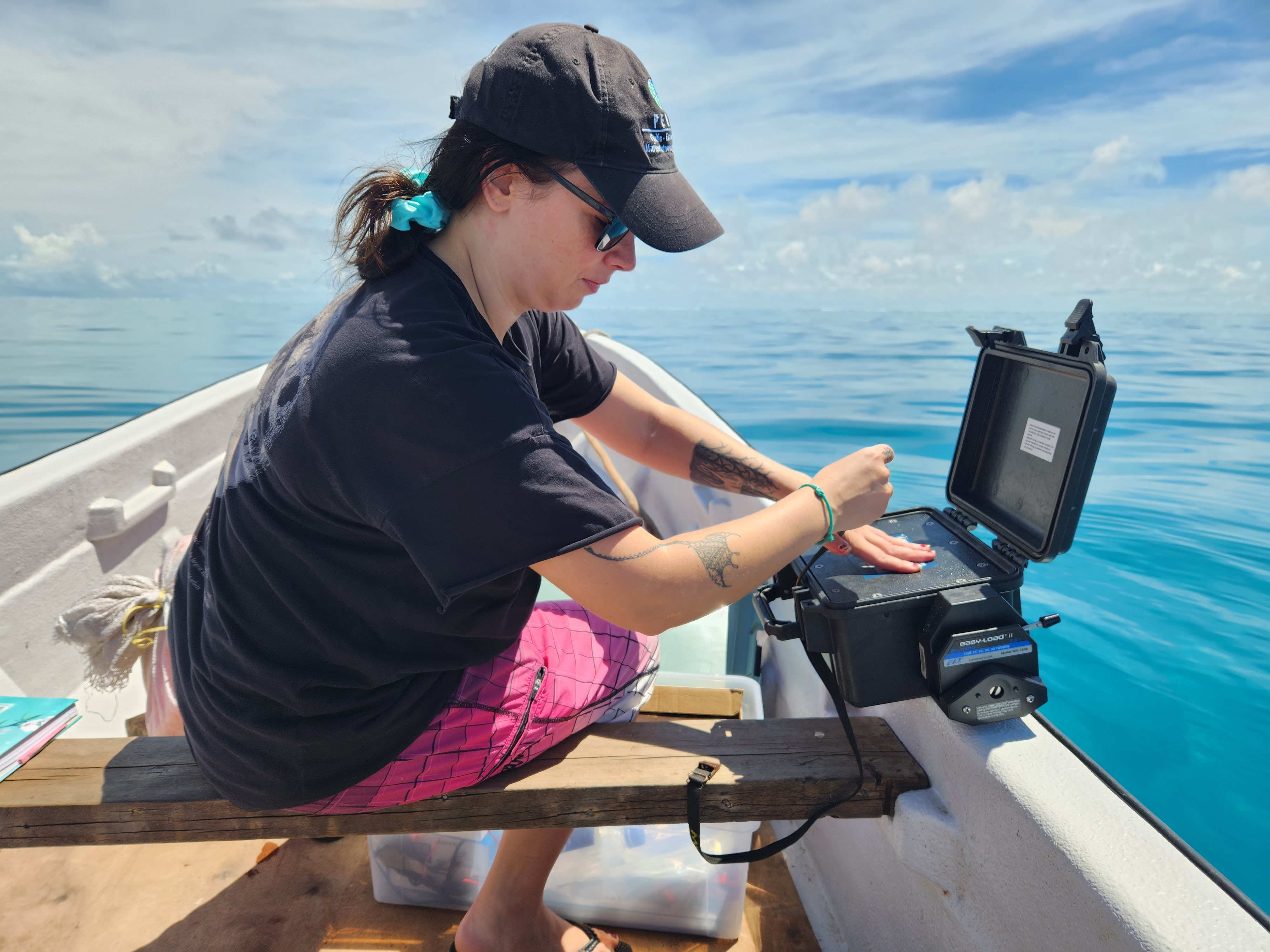Related News

USP PEUMP Research Fellow, Dr Kerstin Glaus, conducting research on environmental DNA in Tuvalu.
Suva, June 8th 2023: Our planet’s oceans cover more than 70% of its surface, providing a home for countless species and playing a crucial role in maintaining life on Earth. However, our oceans and the life within them are facing unprecedented challenges.
Pollution, overfishing, climate change, acidification, and habitat destruction are just a few of the threats that our oceans and marine ecosystems are currently experiencing. To address these issues and ensure the sustainable use and protection of our oceans, the United Nations has set forth a global agenda known as the Sustainable Development Goals, or SDGs.
SDG 14 – Life Below Water aims to “conserve and sustainably use the oceans, seas, and marine resources for sustainable development.” It recognizes the importance of the oceans in supporting life, providing livelihoods and driving economic growth.
Ninety percent of Pacific Islanders live within 5-10 km of the coast and marine resources are particularly important for people living in coastal communities, who represented 37 per cent of the world’s population in 2010. Ocean conservation and its sustainable use is central to achieving the 2030 Agenda, especially for most Pacific Island countries.
In commemoration to World Ocean’s Day 2023, the University of the South Pacific’s Pacific-European Union Marine Partnership (PEUMP) project, introduces USP’s very first online course on SDGs with particular focus on SDG 14 – Life Below Water. Titled SDG14 – Life Below Water this massive open online course (MOOC) will deliberate on the 10 targets under SDG14; around aspects of ocean conservation and sustainability.
Funded by the European Union and the Government of Sweden, the USP PEUMP project provides capacity building and research and development opportunities within the context of fisheries and resources management to the Pacific Island countries.
USP is one of four key implementing partners of the EUR 45million PEUMP Programme, which aims to promote sustainable management and sound ocean governance for food security and economic growth while addressing climate change resilience and conservation of marine biodiversity. It follows a comprehensive approach, integrating issues related to ocean fisheries, coastal fisheries, community development, marine conservation and capacity building under one single regional action. The PEUMP project is housed within the Institute of Marine Resources within the School of Agriculture, Geography, Environment, Ocean and Natural Sciences (SAGEONS).
SDG 14 recognizes the interconnectedness between healthy oceans and the well-being of people and the planet. By working together and taking action, we can protect our oceans and promote sustainable development for all.
Register here to learn more about Life Below Water!
About us
The Pacific-European Union Marine Partnership (PEUMP) Programme addresses some of the most serious challenges faced by Pacific countries. Among these are the increasing depletion of coastal fisheries resources; the threats to marine biodiversity, including negative impacts of climate change and disasters; the uneven contribution of oceanic fisheries to national economic development; the need for improved education and training; and the need to mainstream a rights-based approach and to promote greater recognition of gender issues to ensure inclusiveness and positive changes for Pacific island people. The seven-year PEUMP programme is funded by the European Union (EUR 35 million) and the government of Sweden (EUR 10 million). It is implemented by the Pacific Community (SPC), the Forum Fisheries Agency (FFA), the Secretariat of the Pacific Regional Environment Programme (SPREP) and the University of the South Pacific (USP) in close collaboration with Non-Government Organisations and the national authorities.